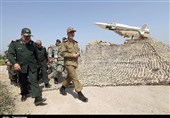More Than 100 Die in Malaysian Immigration Detention Camps in Two Years
TEHRAN (Tasnim) – More than one hundred foreigners died in the past two years in Malaysia's immigration detention centers from various diseases and unknown causes, according to documents from the government–funded National Human Rights Commission reviewed by Reuters.
The toll, which has not been previously disclosed, is based on Malaysian immigration department data provided to the commission, which is known by its Malay acronym Suhakam. There were 83 deaths in 2015, and at least 35 in 2016 up to Dec. 20.
It is unclear whether the death rate is higher than in neighboring countries. Government officials in Indonesia and Thailand told Reuters they do not disclose such numbers. The rate is higher than in major industrialized nations such as the United States, which in the last financial year recorded 10 deaths in its immigration detention system, which has many more detainees than Malaysia’s.
More than half of the 118 dead are from Myanmar, the source for tens of thousands of refugees coming to Malaysia, including Rohingya Muslims escaping persecution by Myanmar’s authorities and its majority Buddhist population. The number of Rohingya fatalities in the camps is unknown.
Malaysian Prime Minister Najib Razak has been a harsh critic of the Myanmar government and its de-facto leader Aung San Suu Kyi after a crackdown in October by Myanmar’s security forces led many Rohingya to flee across its borders amid multiple allegations of mass killings and gang rapes by troops. He has called for foreign intervention to stop the “genocide” in Myanmar.
Najib’s office did not return calls seeking comment.
"The numbers are too many and are shocking and it calls for the overhaul of the system," said Jerald Joseph, one of eight commissioners at Suhakam, which was established by the Malaysian parliament through an act in 1999 and is due to publicly announce the numbers next week in its annual report on human rights issues in Malaysia.
He described conditions at the centers, some of which he has visited, as “appalling” and said the deaths should be investigated as a criminal matter. The illnesses that led to some of the deaths may have been caused or exacerbated by poor sanitation and food, physical abuse and a lack of medical attention, said Joseph, who was speaking on behalf of the commission.
Malaysia’s home ministry, which oversees the immigration department, said it was trying to improve the conditions in the centers but that its budget was constrained.
“I agree there is some overcrowding and the conditions are not ideal. We are always trying to improve the procedures, health conditions and management of these sites. The problem is we hit a budget brick wall," said deputy home minister Nur Jazlan Mohamed in an interview.
He said there wasn't enough funding to upgrade facilities, provide adequate healthcare and hire and train enforcement officers. Jazlan blamed overcrowding on the “never ending flow of people seeking better future in Malaysia.”
The living conditions inside the Malaysian camps are grim – overcrowded, unhygienic and brutal - according to interviews with 13 former detainees, and 12 others who have regularly visited the centers, including people from government agencies and rights groups.
Those who had been detained say they did not get adequate food, water or healthcare, that many inmates developed skin and lung infections, and the sick are usually not isolated, leading to the spread of contagious diseases.
All of the detainees interviewed also allege they were beaten by guards at the camps or witnessed others being beaten. One former Rohingya inmate of the Lenggeng camp in the southwestern state of Negeri Sembilan told Reuters in an interview that he witnessed detainees being beaten and then saw them die when the resulting injuries were not treated. “When we asked for medicines, we were beaten,” he said.
Reuters could not independently verify his account or the similar accusations made by other detainees. They all declined to be identified for fear of reprisals.






